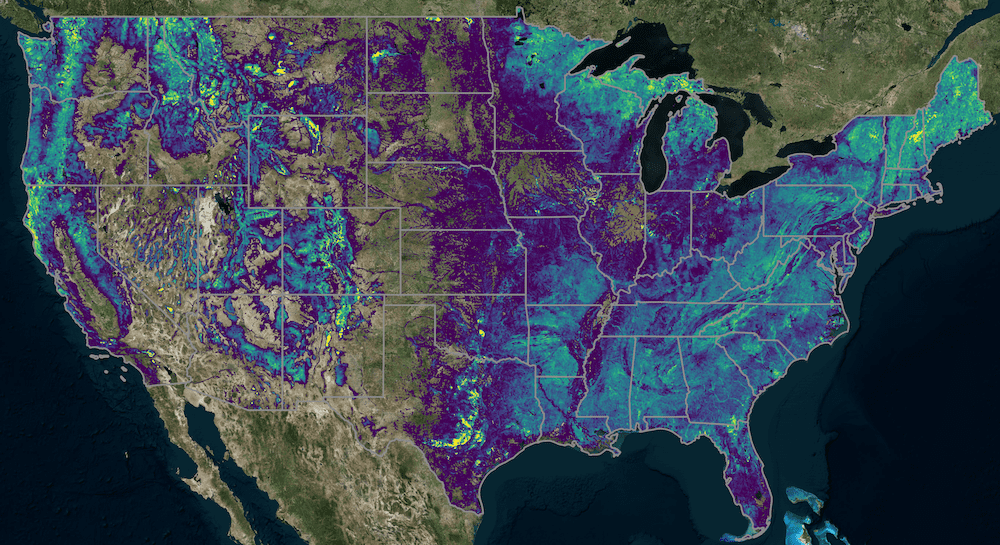I have a new job! I’m doing climate tech at NCX (née SilviaTerra), using satellite imagery to prevent deforestation and sequester more carbon in trees.
A few years ago, I looked around for a side project on the climate crisis. Nothing big, maybe 5-10 hours a week, but I was ready to roll up my sleeves, jump in, and do my part. I found lots of people who were excited to talk, and plenty of interesting projects. I hacked on electricityMap a bit, helping them calculate and monitor the carbon intensity of electricity across the world. Even so, I never quite found anything part time that was truly satisfying.
The itch didn’t go away, though. It kept gnawing at me, in the back of my mind, just below the surface. I was happy at Color, health was a great mission, but I knew that over the long term, health was improving. Life expectancy has consistently increased over the last couple centuries, across the board. I was pushing a boulder downhill.
The climate crisis, on the other hand, has only gotten more acute over time. It may be the biggest and most pressing problem of our generation. Naturally, it was high on the list of problems I’d love to work on. Fortunately, the corollary to “software is eating the world” is that tech jobs are general purpose, so we’re lucky that we can work on almost anything, even if it’s as physical and diffuse and global as the climate crisis.
I started thinking seriously about jumping in full time around the end of 2019. I reached out to a ton of people, academics and policymakers and investors and big company lifers and startup founders, and had a bunch of conversations. I fleshed out my knowledge with a fascinating class and wrote some fun speculative fiction. The problem was daunting, especially after COVID hit, but everyone’s optimism was inspiring. I was sold.
When I started looking at opportunities, I paid attention to three things: direct impact on emissions, need for software, and lack of tech people. I talked to a number of great places and people and ended up at one of my favorites: NCX.
NCX is a marketplace for forestry carbon offsets that uses satellite imagery to measure and monitor participating land. Our goal is to “value every tree, every acre, every year.” Trees and forests are an amazingly powerful resource to fight climate crisis, but historically, forest carbon offsets have had mixed results at best. Policy is difficult, and incentives are tempting to game. We use silviculture experts, machine learning, and high resolution, high frequency satellite imagery to measure both how much carbon is sequestered in forest and and how much it will grow or get harvested each year. We then connect buyers with landowners who commit to harvest less, year by year, and carefully monitor that change in behavior.
So far, I’m loving it. In some ways, it’s similar to the bioinformatics and health tech I worked on at Color. Half the engineering work is high velocity, high touch web application development, half is distributed data processing in a deep, complex domain. Right now I’m immersed in MLOps, finding the right infrastructure to help our data scientists experiment, train, deploy, and monitor models at scale, in production.
Also, in a clear sign of the times, it’s fully remote. I wasn’t excited about that – I love working in an office, with a team, in person – but it’s turned out to be better than I expected. They’ve fostered a culture of presence, async and lightweight and text-based, that helps us feel the company’s pulse without drowning in Zoom and Slack overload. (It also helps that the people are amazing!)
Overall, it’s been a great move so far, and it’s just the beginning. Climate tech is booming right now. We need more good people! If this piqued your interest, drop me a line, I’d love to talk.




wow, congrats! This sounds like a great fit!
Congrats!!
Good for you!
Glad to have you aboard @schnarfed – excited to be building this with you
This is completely awesome. Congratulations!
Sounds really interesting! Congrats on the change
Very cool!
Yay! Awesome
There are already plenty of wonderful climate scientists, doctors, and researchers. They’re hungry to work with good tech people to build new and better tools. You don’t need any domain knowledge; your tech skills alone are more than enough. Jump in, the water’s fine, we need your help!
Look forward to hearing more about this work.
20 years ago I wrote NEPA challenges to the US forest service use of IR images for post-fire salvage [sic] sales because their models were awful and they cut live old growth.
I’d like to know how things have progressed.